Vaggelis Atlidakis
Pythia: Grammar-Based Fuzzing of REST APIs with Coverage-guided Feedback and Learning-based Mutations
May 23, 2020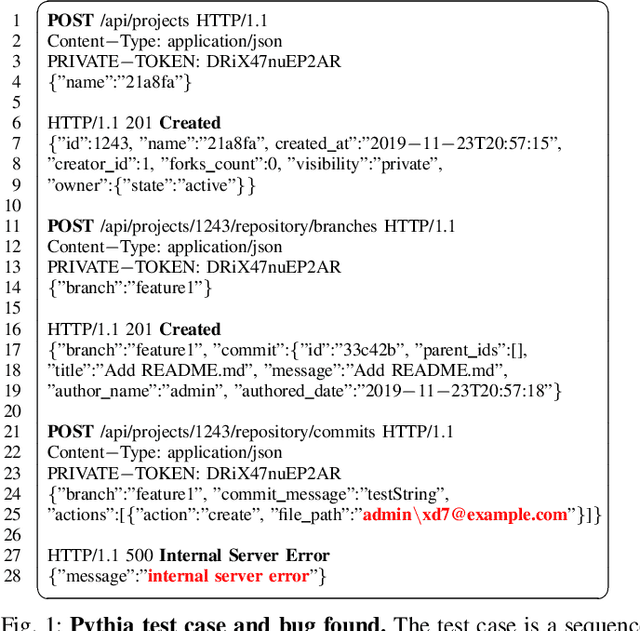
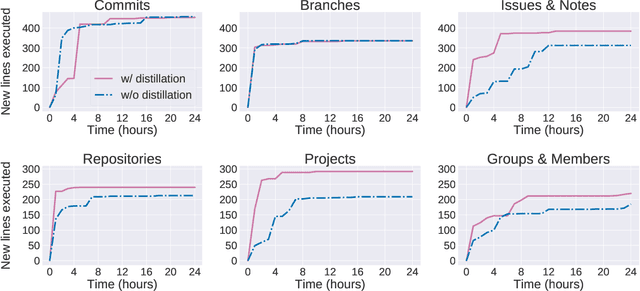
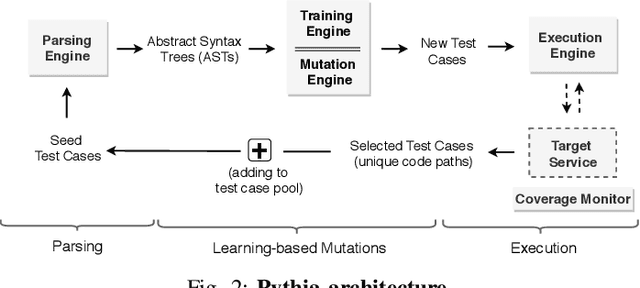
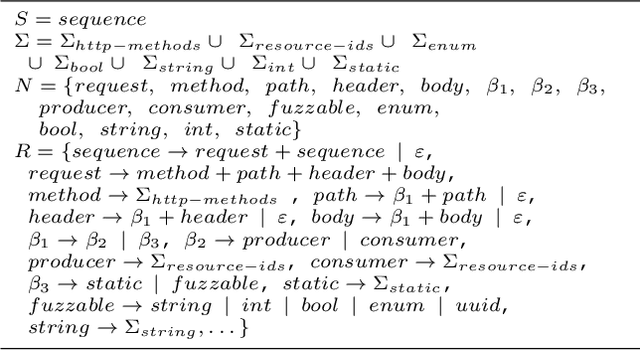
Abstract:This paper introduces Pythia, the first fuzzer that augments grammar-based fuzzing with coverage-guided feedback and a learning-based mutation strategy for stateful REST API fuzzing. Pythia uses a statistical model to learn common usage patterns of a target REST API from structurally valid seed inputs. It then generates learning-based mutations by injecting a small amount of noise deviating from common usage patterns while still maintaining syntactic validity. Pythia's mutation strategy helps generate grammatically valid test cases and coverage-guided feedback helps prioritize the test cases that are more likely to find bugs. We present experimental evaluation on three production-scale, open-source cloud services showing that Pythia outperforms prior approaches both in code coverage and new bugs found. Using Pythia, we found 29 new bugs which we are in the process of reporting to the respective service owners.
Certified Robustness to Adversarial Examples with Differential Privacy
Oct 07, 2018

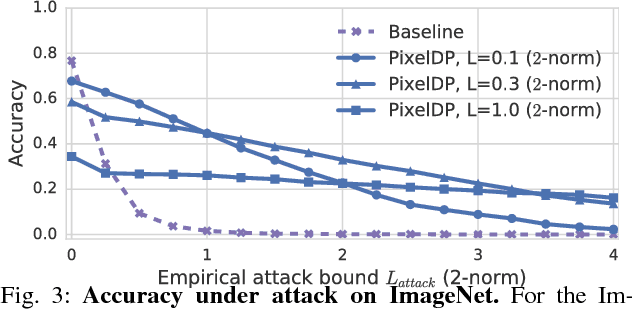

Abstract:Adversarial examples that fool machine learning models, particularly deep neural networks, have been a topic of intense research interest, with attacks and defenses being developed in a tight back-and-forth. Most past defenses are best effort and have been shown to be vulnerable to sophisticated attacks. Recently a set of certified defenses have been introduced, which provide guarantees of robustness to norm-bounded attacks, but they either do not scale to large datasets or are limited in the types of models they can support. This paper presents the first certified defense that both scales to large networks and datasets (such as Google's Inception network for ImageNet) and applies broadly to arbitrary model types. Our defense, called PixelDP, is based on a novel connection between robustness against adversarial examples and differential privacy, a cryptographically-inspired formalism, that provides a rigorous, generic, and flexible foundation for defense.
 Add to Chrome
Add to Chrome Add to Firefox
Add to Firefox Add to Edge
Add to Edge